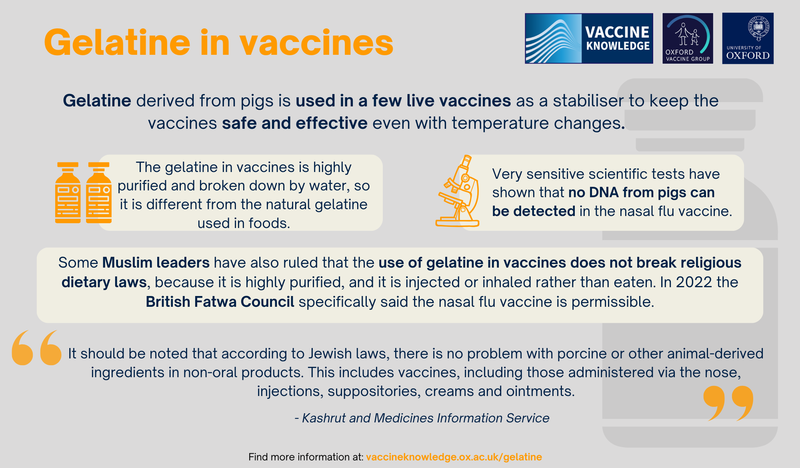|
Gelatine derived from pigs is used as a stabiliser in several vaccines made using live viruses. This protects them against the effects of temperature changes during storage, so they remain effective and safe. All forms of gelatine that are used in medicines are manufactured under strict hygiene and safety regulations.
Gelatine in vaccines is highly purified and hydrolysed (broken down by water), so it is different from the natural gelatine used in foods. For example, very sensitive scientific tests have shown that no actual DNA from pigs can be detected in the nasal flu vaccine that contains gelatine (Fluenz).These tests show that the gelatine is broken down so much that the original source cannot be identified. There have been a tiny number of cases of allergic reactions to vaccines containing gelatine -about one case for every two million doses of vaccine. People with a known allergy to gelatine should seek medical advice before receiving vaccines containing gelatine. |




